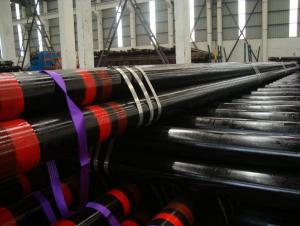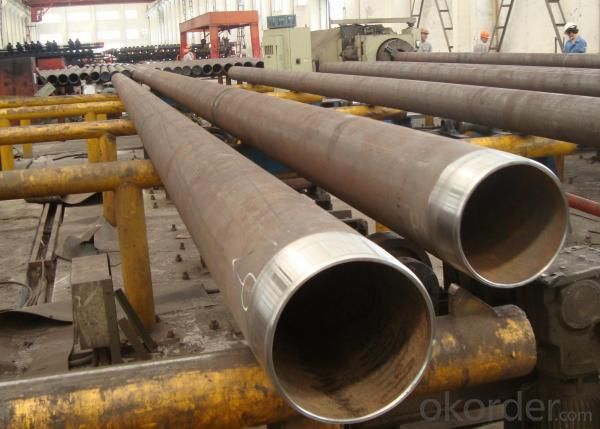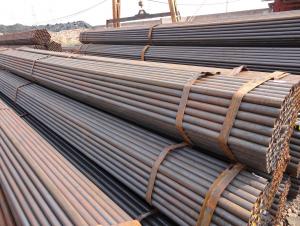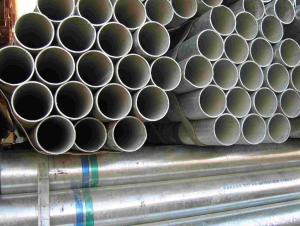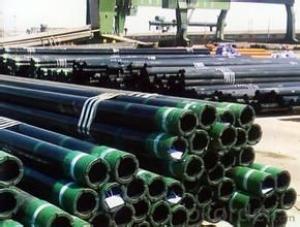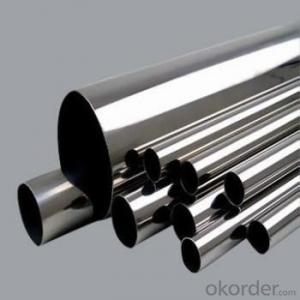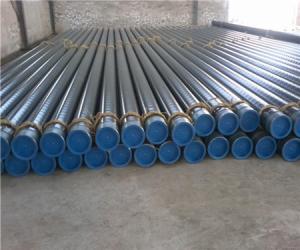API pipe for oil casing
- Loading Port:
- Baoshan Port
- Payment Terms:
- TT or LC
- Min Order Qty:
- 50MT m.t.
- Supply Capability:
- 5000 Tons Per Month m.t./month
OKorder Service Pledge
OKorder Financial Service
You Might Also Like
Best price with high quality of API pipe for oil casing,API Specification 5CT / ISO 11960:2001.
1. Outside diameter of API pipe for oil casing,
For upset pipe, the following tolerances apply to the outside diameter of the pipe body immediately behind the upset for a distance of approximately 127 mm (5.0 in) for sizes Label 1: 5-1/2 and smaller, and a distance approximately equal to the outside diameter for sizes larger than Label 1: 5-1/2. Measurements shall be made with callipers or snap gauges.
|
Label 1 |
Tolerances behind meuor L0 |
|
£3-1/2 |
+ 2,38 mm to – 0,79 mm (+ 3/32 in to – 1/32 in) |
|
|
|
|
>3-1/2 to £5 |
+ 2,78 mm to – 0,75% D(+ 7/64 in to – 0.75% D) |
|
|
|
|
>5 to £8-5/8 |
+ 3,18 mm to – 0,75% D(+ 1/8 in to –0.75% D) |
|
|
|
|
>8-5/8 |
+ 3,97 mm to – 0,75% D(+ 5/32 in to – 0.75% D) |
|
|
|
For Label 1: 2-3/8 and larger external-upset tubing the following tolerances shall apply to the outside diameter at distance La(see Figure D.5) from the end of the pipe.
The measurements shall be made with snap gauges or calli pers. Changes in diameter between Laand Lbshall be smooth and gradual. Pipe body OD tolerances do not apply for a distance of Lbfrom the end of the pipe.
|
|
Label 1 |
Tolerances |
|
|
|
|
|
|
³2-3/8 to £3-1/2 |
+ 2,38 mm to – 0,79 mm (+ 3/32 in to – 1/32 in) |
|
|
|
|
|
|
>3-1/2 to £4 |
+ 2,78 mm to – 0,79 mm (+ 7/64 in to – 1/32 in) |
|
|
|
|
|
|
>4 |
+ 2,78 mm to – 0,75% D(+ 7/64 in to – 0.75% D) |
|
|
|
|
|
2. Wall thickness of API pipe for oil casing |
| |
|
Tolerance – 12,5% |
| |
|
3. Mass of API pipe for oil casing |
| |
|
Amount |
Tolerance | |
|
Single lengths |
+ 6,5% to – 3,5% | |
|
Carload 18 144 kg (40 000 lb) or more |
– 1,75% | |
|
Carload less than 18 144 kg (40 000 lb) |
– 3,5% | |
|
Order items 18 144 kg (40 000 lb) or more |
– 1,75% | |
|
Order items less than 18 144 kg (40 000 lb) |
– 3,5% | |
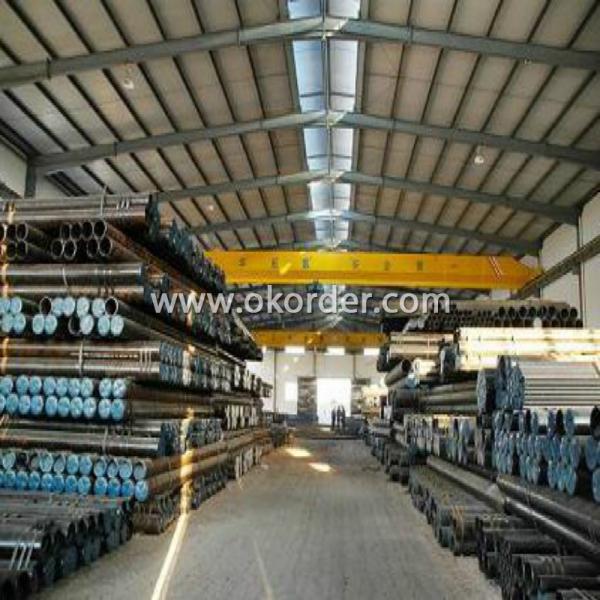
| Packaging Detail: | packing: in bundles,black painting and end caps |
| Delivery Detail: | Within 25 days after the receipt of deposit or At sight L/C |
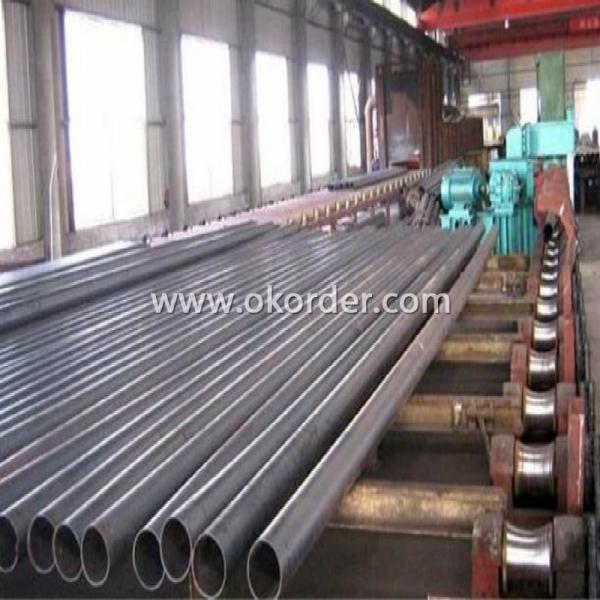
Production line for producing .
Surface:black lacquered,varnish coating or galvanized.
Ends:Beveled or square cut,plastic capped,painted
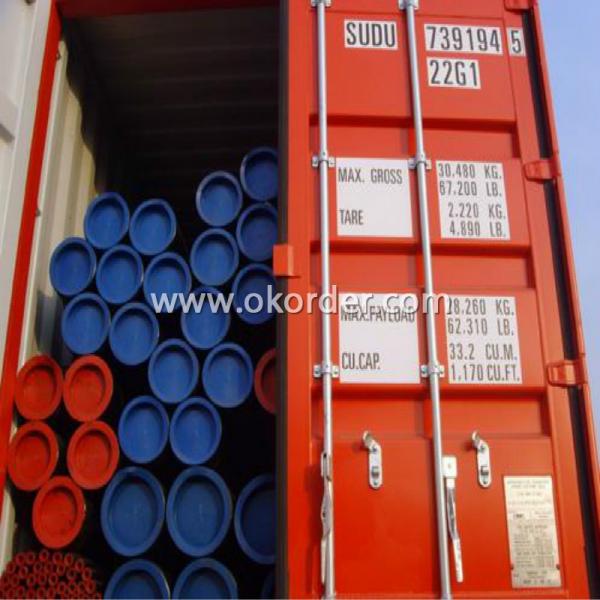
Container loading with professional and experienced service..Application:seamless steel pipe for low and medium pressure boiler,high pressure boiler and ship-building ,liquid service,petroleum cracking,chemical fertilizer equipment,drawing-oil-equipment and structure purpose!
Welcome to order API pipe for oil casing from us .
- Q: How do you calculate the pipe flow velocity coefficient for steel pipes?
- The Manning's equation is employed to determine the flow velocity in open channels and pipes, taking into consideration the hydraulic radius, slope, and roughness coefficient of the pipe. By applying this equation, the pipe flow velocity coefficient for steel pipes can be calculated. To ascertain the pipe flow velocity coefficient for steel pipes, the following steps should be followed: 1. Calculate the hydraulic radius (R) of the steel pipe by dividing the cross-sectional area (A) of the pipe by the wetted perimeter (P). The formula to use is R = A/P. 2. Determine the slope (S) of the pipe, which is the change in elevation divided by the length of the pipe. Usually, it is expressed as a ratio or a percentage. 3. Obtain the roughness coefficient (n) of the steel pipe, representing the internal roughness of the pipe. This information can be found in literature or pipe manufacturer specifications, often given in terms of the Manning's roughness coefficient. 4. Insert the values of hydraulic radius (R), slope (S), and roughness coefficient (n) into the Manning's equation: V = (1/n) * R^(2/3) * S^(1/2) where V signifies the flow velocity. 5. Solve the equation for V to calculate the pipe flow velocity coefficient for steel pipes. It is crucial to note that the calculated velocity coefficient may differ depending on specific pipe dimensions, flow conditions, and other factors. Therefore, it is advisable to consult relevant engineering standards or seek guidance from a hydraulic engineer to ensure accurate and reliable calculations for specific applications.
- Q: How do steel pipes handle chemical exposure?
- Steel pipes are highly resistant to chemical exposure due to their inherent corrosion-resistant properties. The steel used in pipes is often coated with protective layers or made from stainless steel, which makes them capable of withstanding the effects of various chemicals without deteriorating or reacting. This allows steel pipes to handle chemical exposure effectively and maintain their structural integrity over time.
- Q: Are steel pipes suitable for use in hydropower plants?
- Yes, steel pipes are suitable for use in hydropower plants. Steel pipes offer several advantages such as high strength, durability, and corrosion resistance, making them ideal for transporting water or fluids in hydropower plants. Additionally, steel pipes can withstand high pressure and temperature conditions, ensuring smooth and efficient operation of the hydropower plant.
- Q: Can steel pipes be bent?
- Steel pipes can indeed be bent. To achieve this, one usually employs specific tools and methods like pipe bending machines or hydraulic presses. These tools exert pressure on the pipe, leading it to change shape and adopt the desired angle or form. The flexibility of steel pipes makes them adaptable and appropriate for an array of purposes, such as plumbing, construction, and manufacturing. Nonetheless, it's crucial to acknowledge that the extent to which a steel pipe can be bent relies on factors like its diameter, wall thickness, and the type of steel employed.
- Q: What are the different types of gaskets used with steel pipes?
- There are several types of gaskets commonly used with steel pipes, including spiral wound, ring joint, and flat gaskets. Spiral wound gaskets are made by winding a metal strip and a filler material together, providing excellent sealing properties. Ring joint gaskets are typically used in high-pressure applications and have a metallic ring shape to ensure a tight seal. Flat gaskets, on the other hand, are simple, flat pieces of material, often made from rubber or graphite, and are used for low-pressure applications.
- Q: How do you prevent corrosion in steel pipes?
- One effective way to prevent corrosion in steel pipes is by applying a protective coating, such as paint or epoxy, to the surface of the pipes. This barrier creates a physical barrier between the pipe and the surrounding environment, preventing moisture and corrosive agents from coming into direct contact with the steel. Additionally, regular inspection and maintenance of the pipes, including cleaning and repairing any damaged coating, can help identify and address potential issues before they lead to corrosion.
- Q: What is the maximum allowable pressure for steel pipes?
- The maximum allowable pressure for steel pipes typically depends on various factors such as the pipe's diameter, thickness, and material grade. Additionally, it is crucial to consider the intended application and the specific industry standards or codes being followed. Therefore, there is no universal answer to this question, as the maximum allowable pressure can vary significantly depending on these factors. It is essential to consult relevant codes and standards specific to the application to determine the appropriate maximum allowable pressure for steel pipes.
- Q: How can steel pipes be protected from corrosion?
- There are several methods available to protect steel pipes from corrosion. One commonly used method is the application of protective coatings, which create a barrier between the steel and the corrosive elements in the environment. Epoxy is the most widely used coating for steel pipes and offers excellent corrosion resistance. Depending on the specific requirements, polyethylene and polyurethane coatings can also be used. Another effective way to prevent corrosion is through cathodic protection. This technique involves using sacrificial anodes or impressed current systems. Sacrificial anodes, typically made of zinc or aluminum, are attached to the steel pipes and corrode instead of the steel, sacrificing themselves to protect the pipes. Impressed current systems utilize a direct electrical current to counteract the corrosion process. To ensure the longevity of steel pipes, regular maintenance and inspection are crucial. It is important to monitor the condition of the coatings and address any signs of damage or deterioration promptly. Additionally, implementing proper drainage systems to prevent the accumulation of moisture around the pipes is essential for corrosion prevention. Consideration of environmental factors is also necessary when protecting steel pipes from corrosion. This involves mitigating exposure to corrosive substances like acids or chemicals and ensuring adequate ventilation and airflow to prevent moisture and humidity buildup. By implementing a combination of these protective measures, steel pipes can have an extended lifespan and maintain their structural integrity.
- Q: How are steel pipes used in the construction of skyscrapers?
- Steel pipes are commonly used in the construction of skyscrapers for various purposes. They are primarily used as structural components, providing strength and stability to the building's framework. Steel pipes are used to create columns, beams, and trusses, which support the weight of the entire structure. Additionally, steel pipes are used for plumbing and HVAC systems, allowing for efficient distribution of water, air, and other utilities throughout the building. Overall, steel pipes play a crucial role in the construction of skyscrapers, ensuring their durability, safety, and functionality.
- Q: What is the fire rating of steel pipes?
- The fire rating of steel pipes depends on several factors. Steel is inherently fire-resistant due to its high melting point and low thermal conductivity. However, the fire rating of steel pipes can be further enhanced through the use of fire-resistant coatings or insulation materials. These additional measures can provide varying degrees of fire protection, typically measured in terms of the duration the pipes can maintain their structural integrity in a fire scenario. The specific fire rating of steel pipes can vary depending on the thickness and type of coating or insulation used. It is important to consult industry standards, such as those set by organizations like the National Fire Protection Association (NFPA), or consult with fire safety professionals to determine the appropriate fire rating requirements for specific applications.
1. Manufacturer Overview
| Location | Shanghai China |
| Year Established | 1999 |
| Annual Output Value | Above Thirty Million RMB |
| Main Markets | Main land;Middle East; Southeast Asia |
| Company Certifications | ISO 9001:2010;API 5L |
2. Manufacturer Certificates
| a) Certification Name | |
| Range | |
| Reference | |
| Validity Period |
3. Manufacturer Capability
| a) Trade Capacity | |
| Nearest Port | Baoshan |
| Export Percentage | 41% - 50% |
| No.of Employees in Trade Department | 300-500 People |
| Language Spoken: | English; Chinese |
| b) Factory Information | |
| Factory Size: | 30,000 square meters |
| No. of Production Lines | Above 10 |
| Contract Manufacturing | OEM Service Offered; Design Service Offered |
| Product Price Range | Average |
Send your message to us
API pipe for oil casing
- Loading Port:
- Baoshan Port
- Payment Terms:
- TT or LC
- Min Order Qty:
- 50MT m.t.
- Supply Capability:
- 5000 Tons Per Month m.t./month
OKorder Service Pledge
OKorder Financial Service
Similar products
Hot products
Hot Searches
Related keywords
